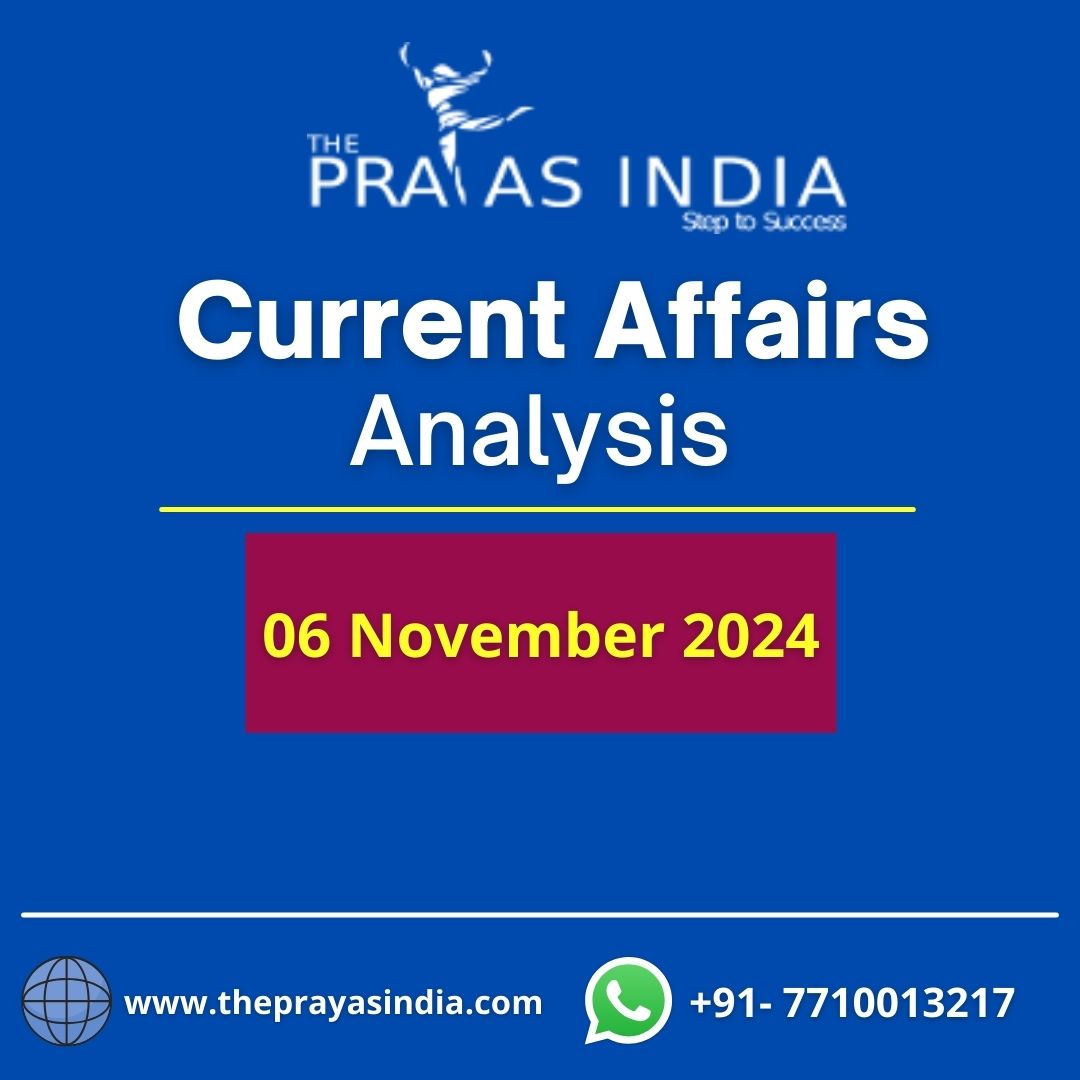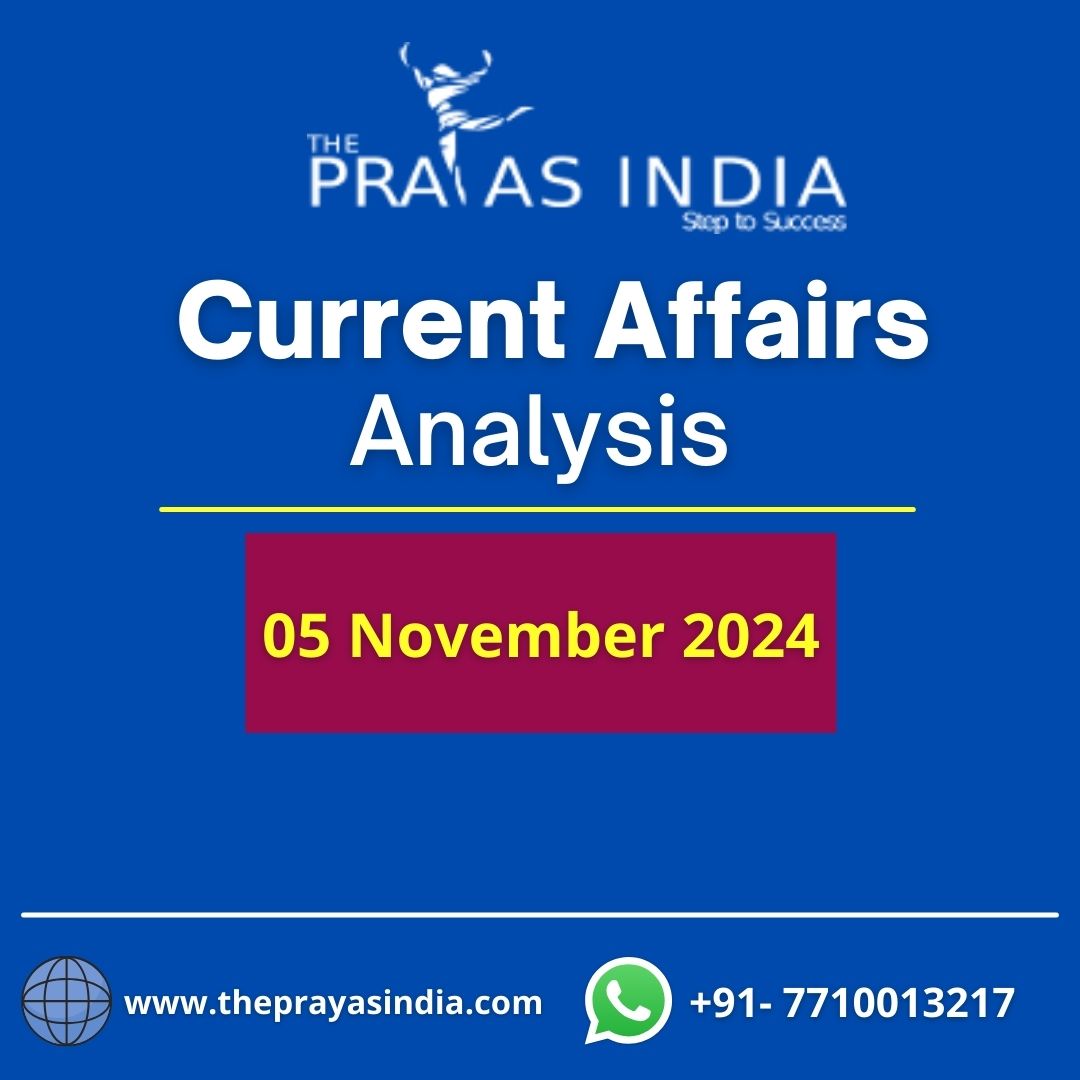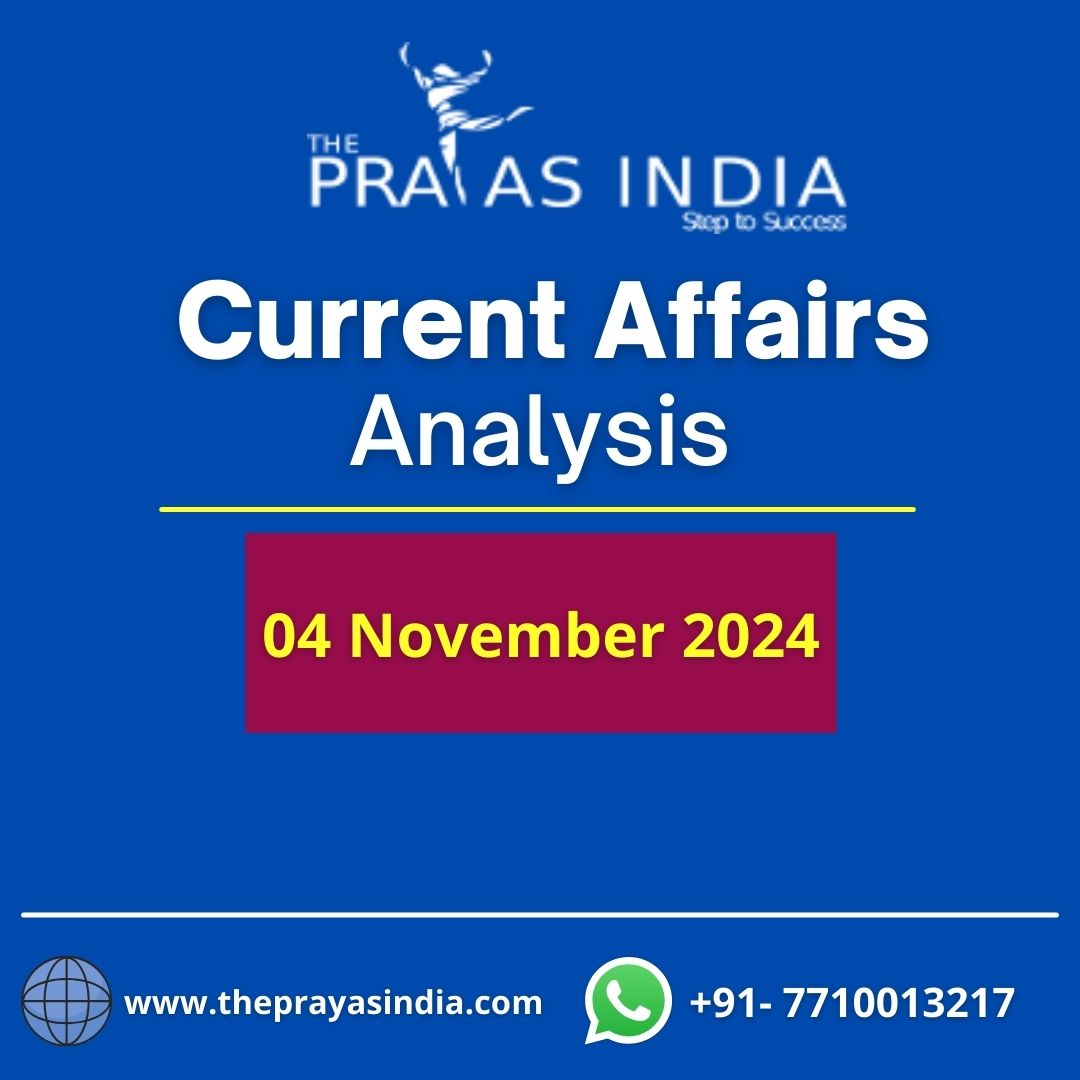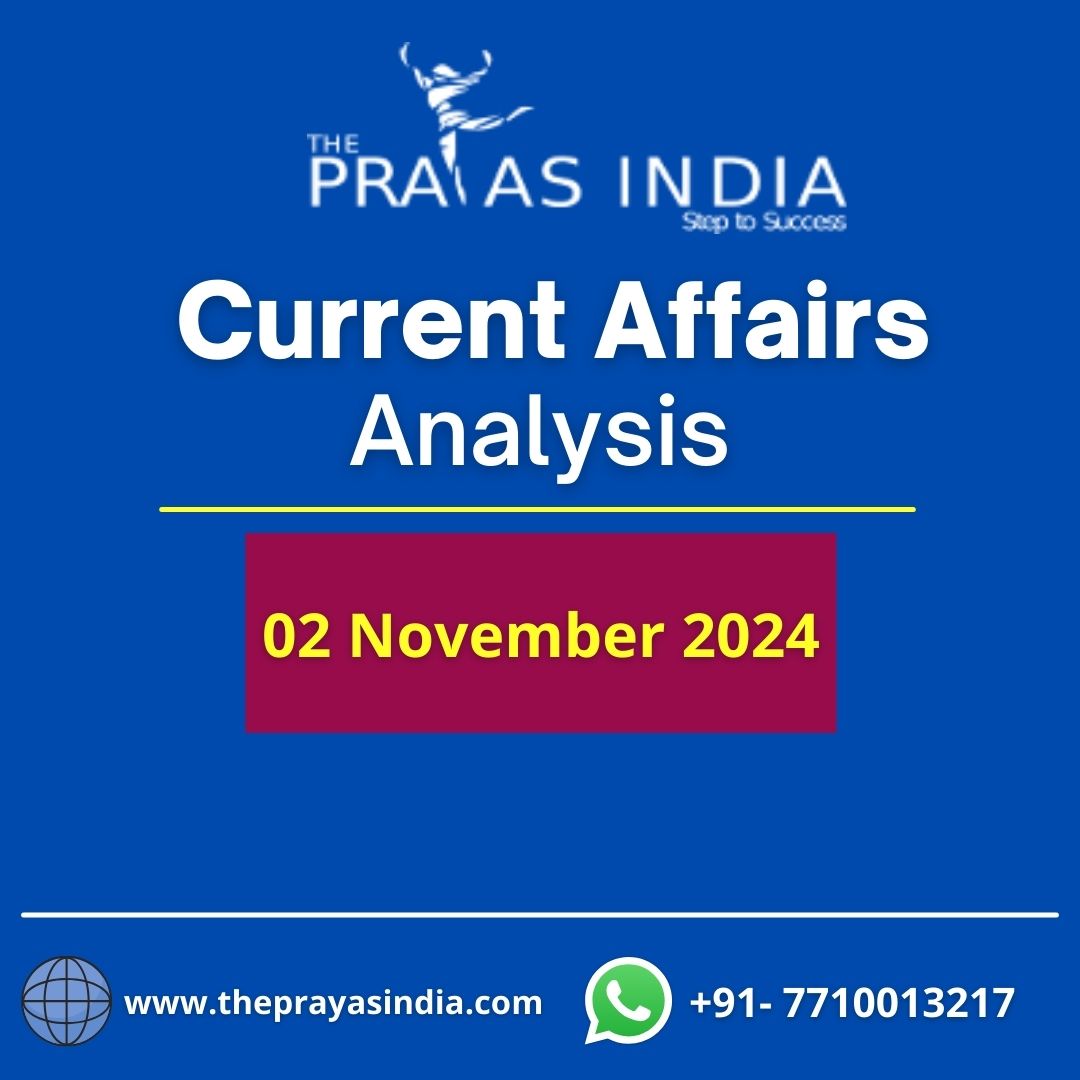DAILY CURRENT AFFAIRS ANALYSIS
1 – Henley Passport Index: GS II – International Issues
Context:
- This year, India advanced seven positions, from 87th to 80th.
In relation to the Index:
- Every passport in existence is ranked by the number of countries its owners can visit without a prior visa according to the Henley Passport Index.
- Top: Singapore, whose passport is currently regarded as the strongest in the world.
- With access to 189 countries without a visa, Japan dropped to third place from first.
- Afghanistan is at the bottom of the list; only 27 places are visa-free for its residents to visit.
- In the first Henley Passport Index, India came in at number 71, with only 25 nations allowing Indian nationals to travel without a visa.
Source The Hindu
2 – U.N. initiative on the Black Sea: GS II – International Relations
Context:
- Recently, Russia said that it would no longer be a member of an agreement with Ukraine that had allowed both countries to continue selling grain despite Russia’s ongoing invasion of the neighbouring nation.
In relation to the Initiative:
- The deal was reached in Istanbul through mediation between Turkey and the UN.
- The agreement for supervision and coordination resulted in the establishment of a Joint Coordination Centre (JCC), which is made up of senior representatives from Russia, Turkey, Ukraine, and the UN.
- Referred to be the “Breadbasket of Europe.”
- The major objective was to maintain an adequate supply of grains and avoid an increase in food costs while reducing market volatility.
- One of the biggest exporters of rapeseed, sunflower oil, sunflower seeds, and wheat in the world is Ukraine.
- the “indispensable role” it played in securing food security around the world.
- Due to its access to the deep-sea ports in the Black Sea, it may immediately communicate with grain importers from the Middle East, North Africa, Russia, and Europe.
- Russia’s participation in East Europe has currently hampered this channel, which was formerly utilised to transport 75% of the nation’s agricultural exports, which is exactly what the endeavour aimed to fix.
What would the suspension of the deal entail?
- Considering that grain stockpiles are at historic lows, describe the price pressures on grain prices, in particular the price of wheat.
- Because they benefitted from the restart and are especially dependent on exports from Russia and Ukraine, Middle Eastern and African countries like Egypt, Turkey, Lebanon, Sudan, and Yemen may be disproportionately affected negatively.
- has an impact on farmers in Ukraine.
- Tight stocks are predicted to drive up prices and keep the market volatile.
- Production and availability of food would be hampered.
Moving forward:
- Due to the breakdown of the grain deal, there would be more people going hungry, so the situation needs to be resolved quickly and diplomatic relations should resume.
- This endeavour has provided a “lifeline” for global food security and a ray of hope in a depressing situation.
- All diplomatic channels must stay open if peace is to be achieved.
Source The Hindu
3 – Indus Water Treaty (IWT): GS II – International Relations
Context:
- The 62-year-old Inter-War Treaty between India and Pakistan will be changed, India announced, blaming Pakistan’s “intransigence” in resolving disputes over the Kishenganga and Ratle hydropower projects, both in Jammu and Kashmir.
About IWT:
- In addition to dividing the Indus River system in 1947, the line of division also established the physical borders between India and Pakistan.
- The flow of the Indus River between India and Pakistan, the two riparian republics, is governed by the Indus Waters Treaty (1960), or IWT.
- The agreement outlines the distribution of the waters of the Indus River and its tributaries, which are vital to Pakistan and north India’s agricultural and other commercial activity.
- According to the stipulations of the Indus Treaty, which divided the six Himalayan rivers evenly between India and Pakistan, Sutlej, Beas, and Ravi, three of the Indus River’s eastern tributaries, are given to India for unrestricted use.
- Pakistan uses the western tributaries (Indus or Sindhu, Jhelum, and Chenab).
- In recent years, when tensions between India and Pakistan have been heightened, the Indus Water Treaty has come up a few times.
IWT’s significance:
- The Treaty has been a crucial international agreement supporting the stability and prosperity of South Asia.
- One of the most successful transboundary water management agreements in the world, it has received high recognition.
Moving forward:
- The acceptance of these two principles in the IWT could be achieved by developing convergent state policies.
- IWT is expected to remain in effect until both parties ratify a new, mutually acceptable agreement and is not subject to a clause that permits unilateral termination.
- To ensure speedy progress, the IWT has to be reviewed.
Source The Hindu
4 – Minimum Guaranteed Income Bill introduced in Rajasthan: GS II – Government Policies and Interventions
The following are the main provisions of the bill:
- A further 25 days of employment are given to rural households that complete 100 days of MGNREGA labour.
- Guaranteed employment for registered urban households for 125 days.
- Every person who qualifies for a pension under this Act—whether due to old age, special needs, widowhood, or being a single woman—shall be granted one.
- Even though they were only established by executive order, numerous other States have recently established employment guarantee schemes for metropolitan regions. The Urban Employment Guarantee Scheme will now get its first ever legislative support.
- Social security benefits are due to disadvantaged segments in society.
Minimum Guaranteed Income is defined as:
- A living wage is guaranteed for all residents or families as a result of this type of social support.
- Everyone in the country will receive money, regardless of the situation of the market.
- A Minimum Income Guarantee (MIG) is a general pledge that no one shall ever fall below a certain level of income.
- The primary goal of a minimum income guarantee is to reduce poverty.
- It can lessen residents’ levels of poverty, inequality, and insecurity regardless of their work condition.
Source The Hindu
5 – Bacteriophages: GS III – Biotechnology related issues
Context:
- Not all viruses are deadly, similar to bacteria; some “friendly” or “good” viruses (bacteriophages) might even be very beneficial to your health.
About:
- Bacteriophages make up the vast majority of viruses in our bodies.
- Bacteriophages are viruses that kill the bacteria in our microbiomes.
- Bacteriophages, or phages as they are more frequently known, do not recognise human cells as their bacterial target, making them harmless to humans.
- They seek out bacteria, stick to the bacterial cell’s exterior, and then inject viral DNA inside the cell to finish the job.
- On rare occasions, the viral DNA may be assisted in reproducing inside the bacterium by the bacterial DNA replication machinery.
- The bacterial cell explodes and releases the newly created viral particles once it has produced enough new viruses.
Why phage therapy is crucial:
- The benefit of phages is that they can neutralise any infections with multiple resistances.
- Phages are very selective in the bacterial types they eliminate, unlike antibiotics, which can disturb the ecology of the gut.
- Therefore, phages could potentially play a significant role in the fight against antibiotic resistance.
- Georgia, for instance, is one of the world’s top centre for phage therapy and has one of the largest therapeutic collections of bacteriophages.
Challenges:
- A significant problem is the absence of standards in therapy.
- The phage therapy must be specially tailored to the pathogens a patient is infected with.
- A variety of phages are needed as a treatment because various bacteria can result in illnesses. Before the infection gets out of hand, this phage mixture needs to be easily accessible.
- Additionally, phage treatments can cause bacteria to develop resistance.
Conclusion:
- In general, phage therapies are risk-free.
- Humans consume billions of phages every day with our meals, seemingly having no detrimental effects.
- Phage therapies ought to be very well tolerated by human bodies as a result.
- The next steps in creating powerful phage therapies for different infections should involve extensive research and clinical testing.
- Antibiotics are not anticipated to be replaced by bacteriophages at this time.
- Experts are optimistic that they could be combined to boost the effectiveness of antibiotics, especially against bacterial species that have evolved resistance to them.
Source The Hindu
6 – Tankai Method: GS III – Biotechnology-related issues
Context:
- The Indian Navy and the Ministry of Culture have signed a Memorandum of Understanding to revive the old Tankai shipbuilding method.
Important details:
- The “stitched shipbuilding method” has been used to construct ships for 2000 years.
- India has a long history of maritime trading, and the use of stitched ships was crucial for discovery, exchange of cultures, and trade.
- Since these ships were constructed by stitching together hardwood planks rather than using nails, they were more flexible and durable, making them less susceptible to damage from shoals and sandbars.
- Even though the arrival of European ships led to a change in shipbuilding techniques, the habit of sewing ships has remained in a few coastal regions of India, mostly for small indigenous fishing boats.
The project’s message is:
- The objective of the project is to showcase the incredible workmanship of India’s last traditional shipwrights by utilising their knowledge.
- By using traditional navigating techniques to sail over ancient maritime routes, the programme seeks to gain insights into the historical interactions across the Indian Ocean that allowed the flow of Indian culture, knowledge systems, traditions, and ideas.
- It aims to reignite the memory of the ocean and arouse pride in India’s people for their extensive nautical history.
- The nations that border the Indian Ocean are urged to protect their cultural memories.
Source The Hindu




